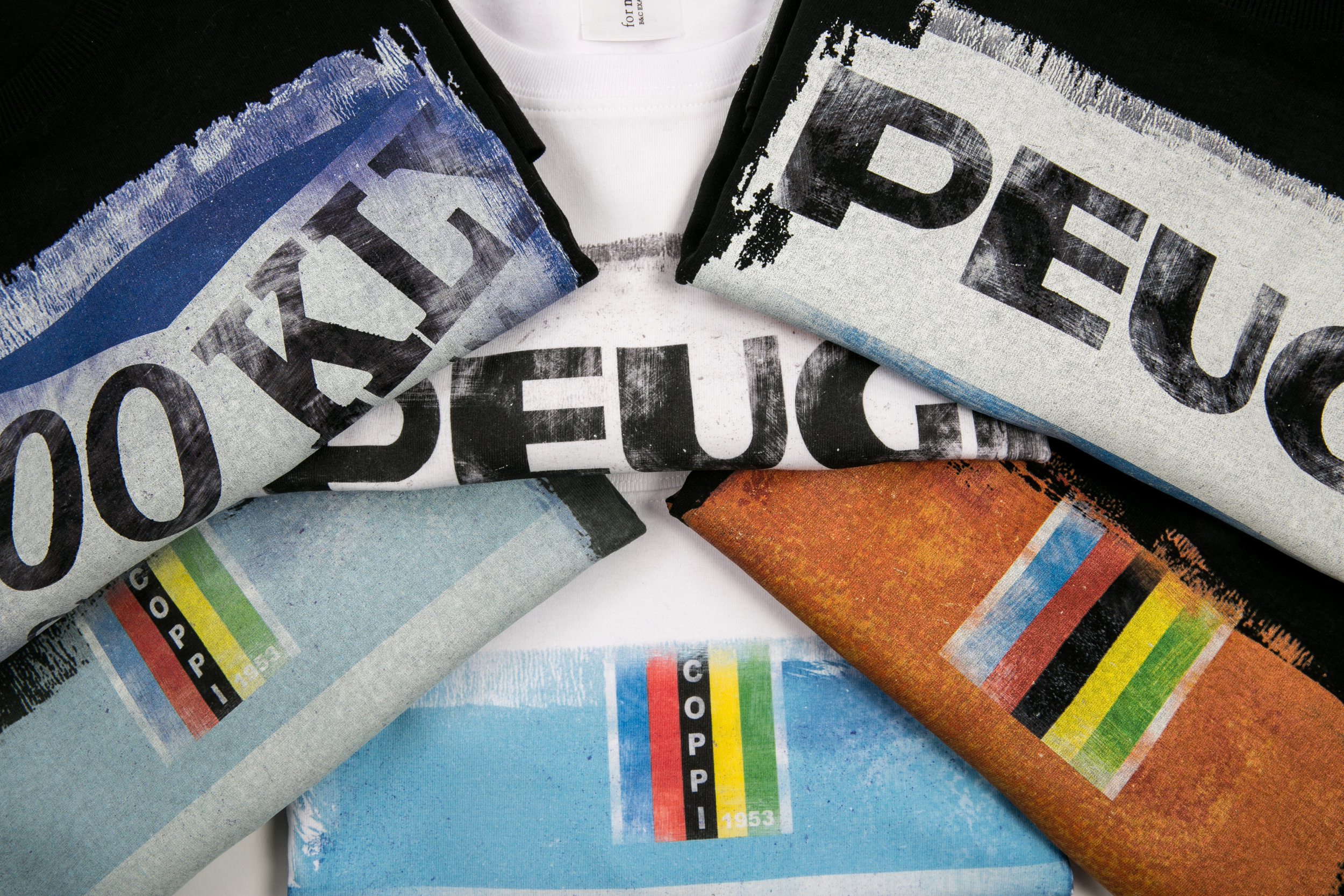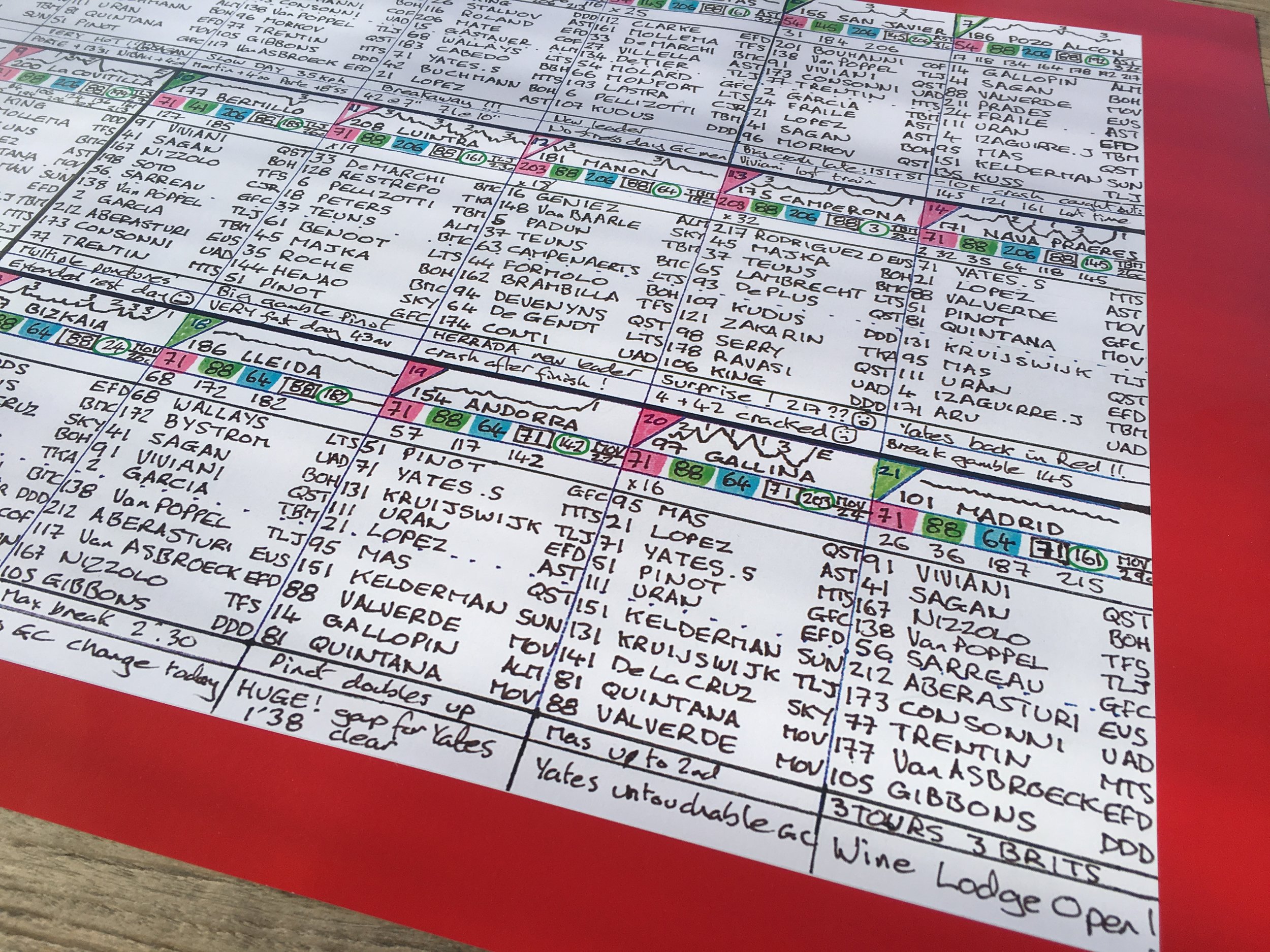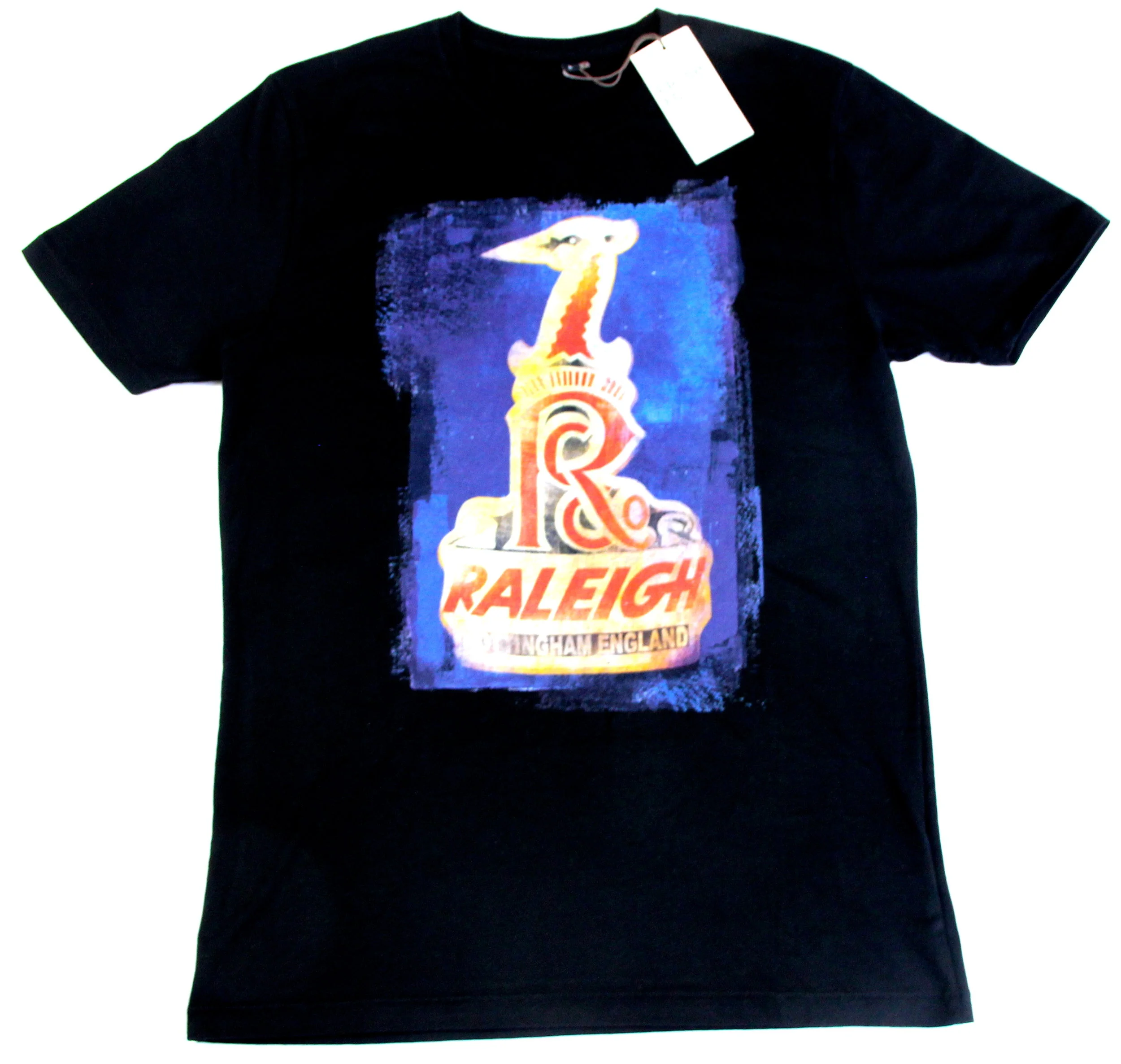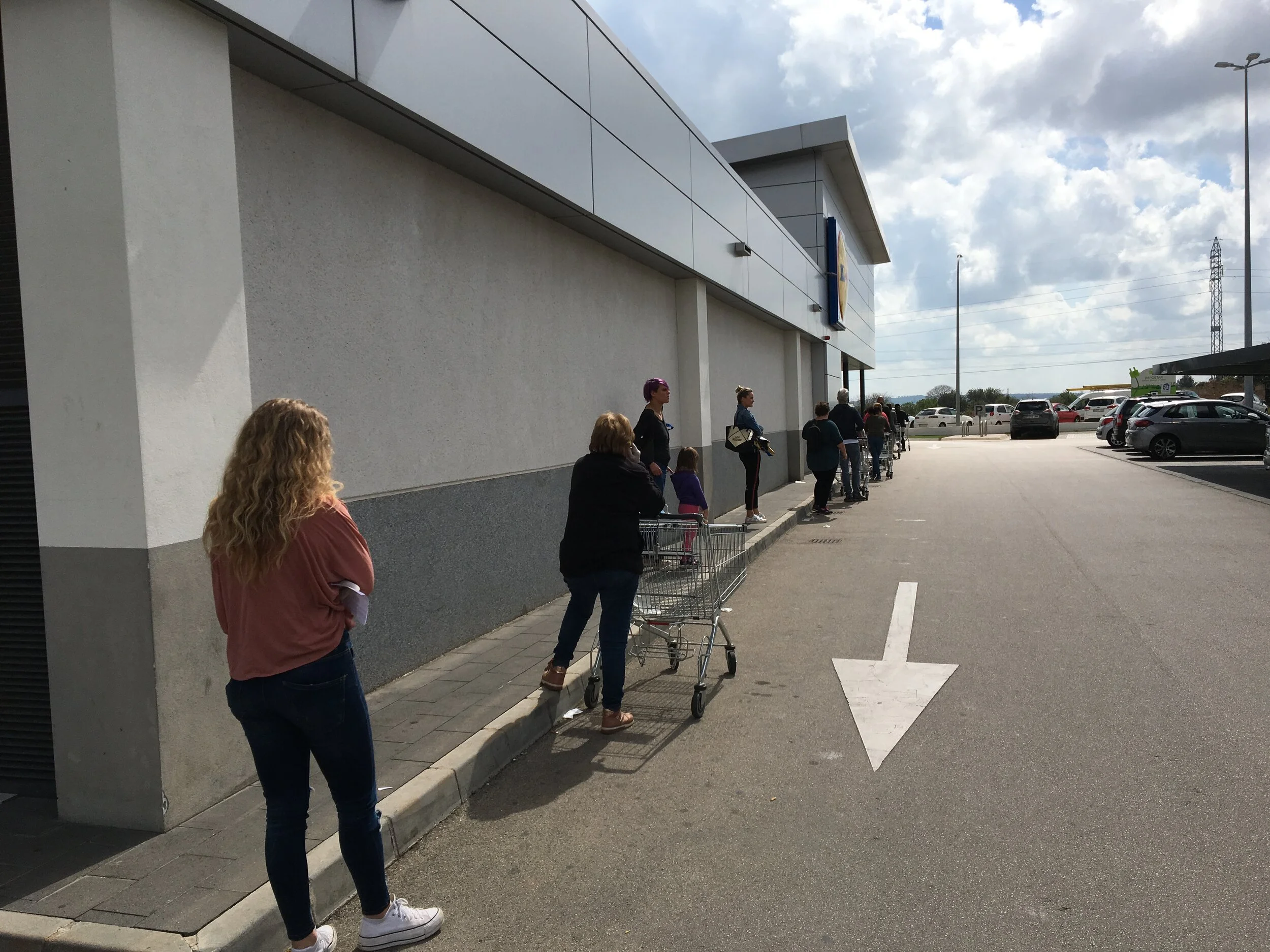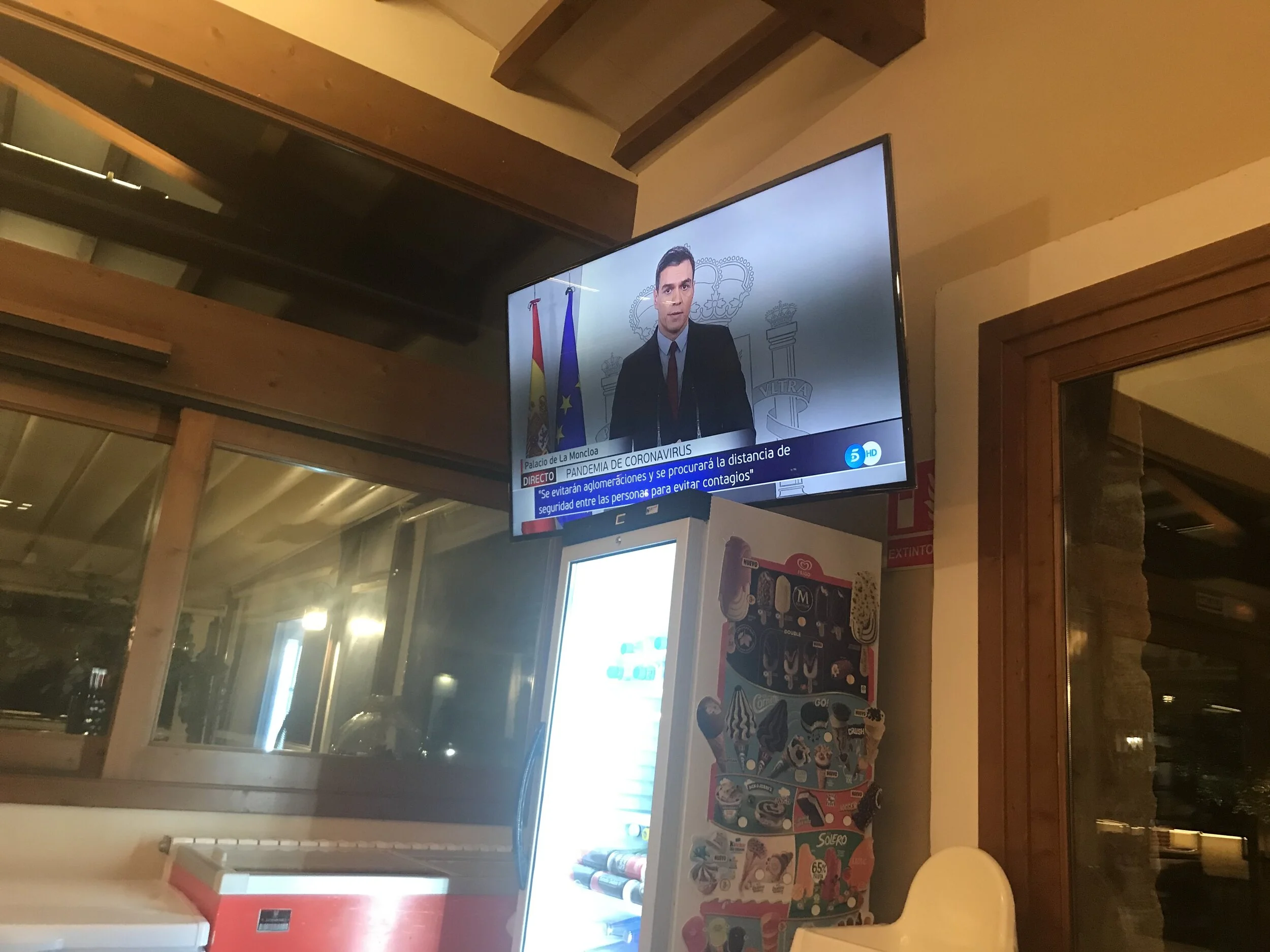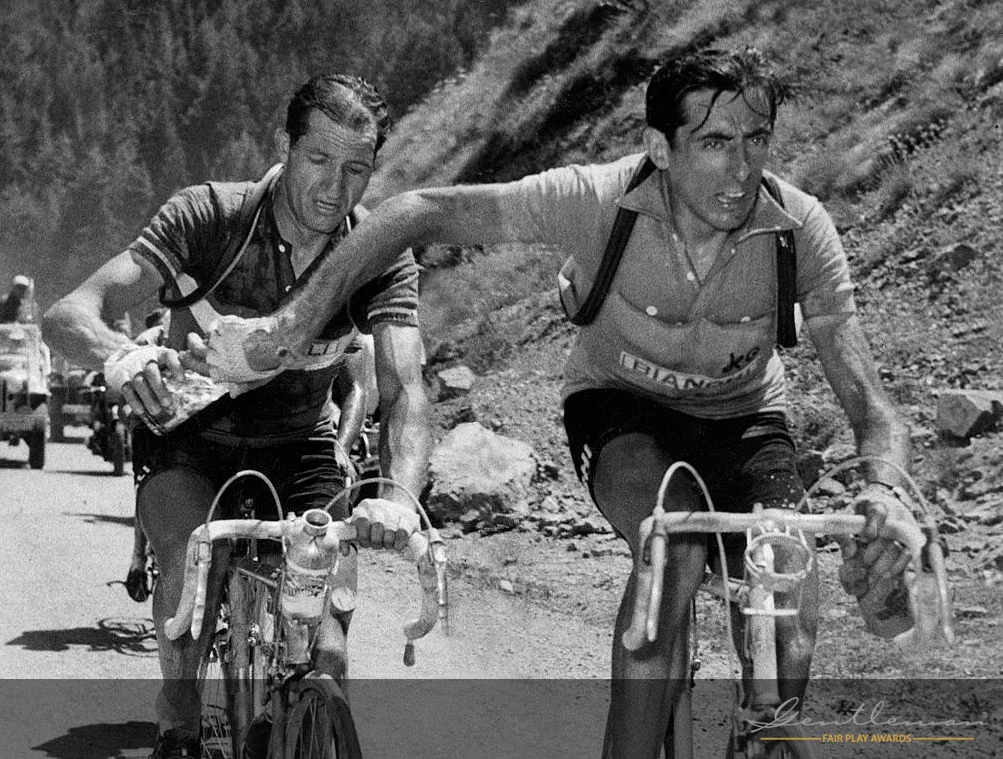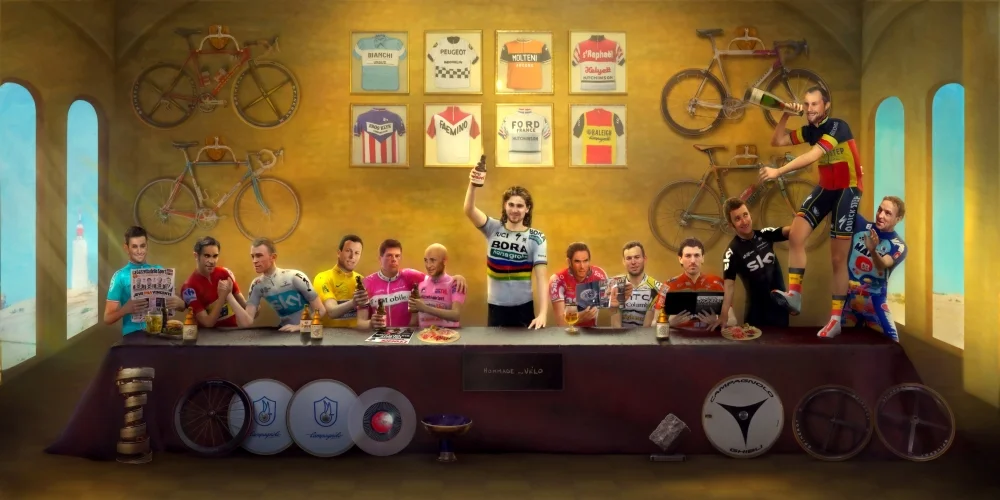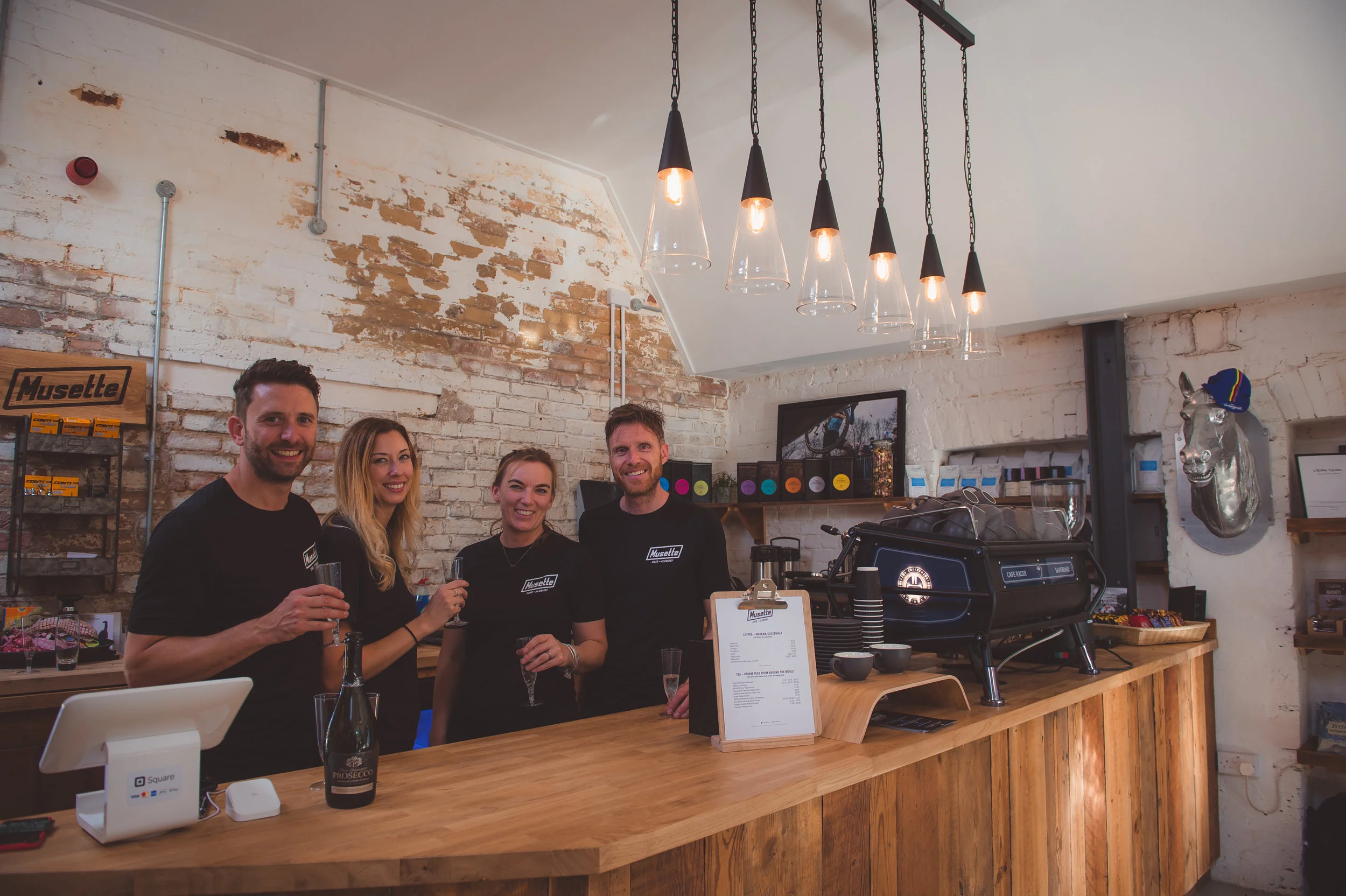Everyone’s heard of Silicon Valley, right: that centre around which the world’s most influential and forward thinking high tech companies congregate, collaborate and compete? Well, Belgium has created its very own ‘Bike Valley’ on the edge of its border with Holland and Germany to emulate America's business hub. When Ride Velo popped over for Eroica Limburg earlier this month, we just had to go there to take a look.
This region really sees itself as the heartland of cycling. Think of some of the great races of the season like The Amstel Gold Race, Liege-Baston-Liege and the Tour of Flanders and any true cycling fan will understand that this is the land of cycle races and cobblestones as well as beer, chocolate and “French” fries. Cycling is in this people’s blood.
A young Mark Cavendish gets a taste of Belgian cobbles
In 2013, three cycling companies – Ridley Race Productions, BioRacer and Lazer Sport – combined to create Bike Valley. Originally the idea was to collaborate in aerodynamics testing and to construct a joint wind tunnel facility. It soon became clear that there were many opportunities to become even more innovative with the numerous cycling-related businesses in the area.
The newly opened Bike Valley Centre which houses offices, a restaurant and a state of the art wind tunnel
As a result they set up a 'non-profit cluster organisation' called Bike Valley which, by 2015, had grown to more than 50 members. The idea was that companies open to innovation could collaborate together to help each other find solutions to some of the major challenges facing the industry; from new production processes to the introduction of more electronic components in bikes.
Although there are no borders or strict geographical boundaries to Bike Valley, its heart remains at The Flanders Bike Valley Experience where their high tech wind tunnel was constructed within a building housing offices, a concept store and sports restaurant. They call this the 'Bikeville Incubator' so that start ups or spin-offs of companies related to cycling can base themselves here and be ‘incubated’ by having access to the rich heart of cycling knowledge of the stalwarts and influencers of the Belgian, Dutch and German cycling industries.
Entering the site is pretty impressive: the huge Ridley facility is here where they design, paint and assemble their world class bikes. Next to Ridley stands the Flanders Bike Valley building itself: futuristic in design and screaming innovation with projecting box windows that protrude from the walls. Inside we're met by Marc Hufkens, co-founder and Chairman, who explains that the concept behind Bike Valley is all about "the network of companies that realise the importance of innovation and the set up of an open network to exchange ideas and information about market evolution, to create cross sector values, to think 'out of the box' - or bike - in order to meet the user driven market needs."
So how do they convert this concept into a reality? Firstly, Marc emphasises the importance that Bike Valley has as a networking hub. He sees the organisation as a kind of business dating agency for cycling entrepreneurs. The community that has been created here has also become a recognised representative of the bike industry as a whole and is involved in higher education, the job market, investors and creative innovators.
The space underneath the wind tunnel is used for functions
Secondly, this is a centre at the heart of the development of science and technology. Clearly, the state of the art wind tunnel is the jewel in the crown. Let's start with its scale: it covers an area of 600m2, almost 50m in length with a maximum wind speed of 108kmh. It's been calibrated for the most accurate measures to optimise the testing of bikes and cyclists and is big enough so that two cyclists can be studied simultaneously, giving a deeper insight into the benefits and possibilities of drafting. By using fine oil particles and a laser measurement system it gives more accurate and in depth analysis compared to the old-fashioned smoke tests. Housed within a building the size of an aircraft hangar, they have used the huge amount of space around and underneath it as an area used for conferences, lectures and even parties. There's even a stage underneath where bands have performed.
Their science and technology strand doesn't stop at aerodynamic testing, however. Bike Valley has spawned numerous other forward looking companies - like the guys who have developed a helmet that includes a heart rate monitor. Boonen Design Studio, who have created what they consider to be the ideal folding bike ("light, easy to fold and sexy!") and Curana who design mudguards with integrated lights for electric bikes are typical of the exciting new businesses there. These are but a few of the many innovative companies who are making the most of being part of Bike Valley.
But Bike Valley also has its fingers in many other pies. It's at the forefront of cycling as a sport, not surprising with companies like Lazer and Ridley at its helm. Various companies are involved in the safety and health sectors like IDE who have developed a walking aid for kids with brain injuries using technology garnered from the cycle industry.
An important strand is the development of cycling as a sustainable method of transport with Interreg, who has nine partners from Belgium, Germany, the UK and the Netherlands, creating solutions to make cycle highways attractive, comfortable, safe and easier to use. They were behind the recent proposal to create a floating cycle lane on the Thames.
Lastly, Bike Valley seek to make the most of the opportunities that tourism offers. The nearby Beringen Mountainbikepark is a case in point. Here they've created a bike park on an old mining hill, 60m high, with steep slopes, two main tracks (a relatively easy 'orange' and a challenging 'red') and various obstacles like rock gardens and jumps in a 'skill park'. Soon to be added to the attraction are an indoor and outdoor swimming pool, a diving tower with sub tropical fish, a climbing facility and a shopping mall.
Visiting Bike Valley was a huge inspiration and a reminder of what can be achieved through collaboration, forward thinking and innovation. Perhaps it's about time that someone in the UK stepped forward to coordinate the many disparate elements of our own burgeoning industry to move us all forward. I nominate Chris Boardman: with a background in track and road racing, building his own bike brand and recently taking on the role of ambassador for cycling as sustainable form of transport, he has all the experience and skills to bind the cycling community together.


